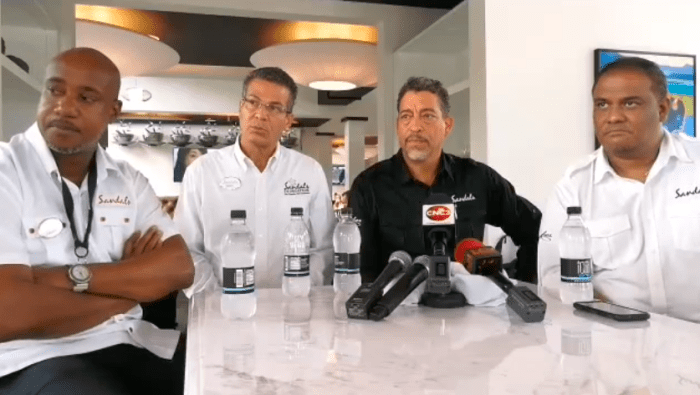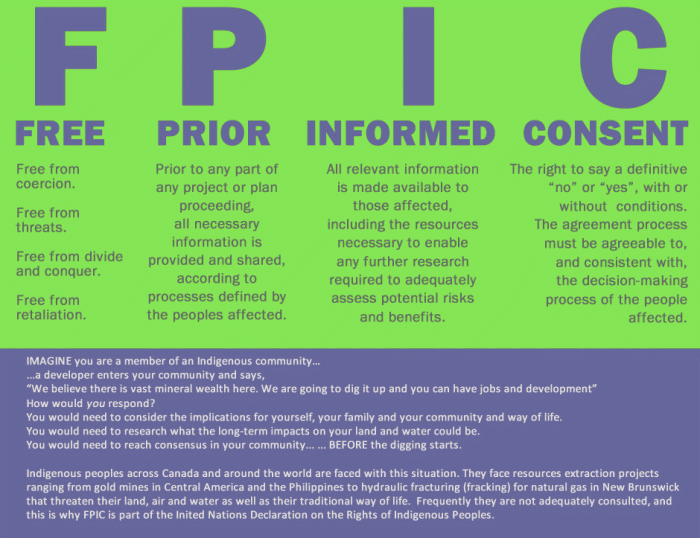I applied to the High Court for a Judicial Review of the refusal of the Office of the Prime Minister (OPM) to provide the Tobago Sandals MoU under the Freedom of Information Act (FoIA). On 11th October 2018, I was granted leave to proceed with the Judicial Review and the Case Management Conference is set for 29th November 2018.
Does the public have the right to know what are the terms and conditions of the various large-scale projects being done by the State?
The twists and turns in this episode seem to be ‘Carefully Crafted Confusion‘ – a phrase I coined during the Invaders’ Bay imbroglio under the previous PP administration. Large-scale projects on valuable public land, expected to require heavy public investment, all being done for the benefit of the public of course, yet the details are kept under covers.
The State’s shifting positions on Tobago Sandals are striking. For example, Minister Stuart Young gave these interviews on CNC3 TV –
- Wednesday 28 February 2018 – in which he insisted that there was no secrecy or any reluctance to engage with the public on this mega-project.
- Wednesday 17th October 2018 – in which he stoutly defended the need for secrecy of the MoU. Of course, having been sued for the refusal to provide the not-secret MoU, an entirely different position is now adopted. With ‘a straight-straight face’, as David Rudder would say. Well I tell you.

So what is Sandals’ position? Consider these reported statements by Sandals Resorts then CEO, Adam Stewart, on 27th February 2018 –
- ‘Sandals deal above board’ in Newsday –
…Asked whether there was a secret deal with the PNM…Stewart said: “There are no secrets. Let me stand behind the government and say there are no secrets…”
- ‘Airport upgrade for Sandals project’ in the Guardian –
…Speaking to local media in Barbados at the weekend, Stewart says the MOU signed between Sandals and the Government was a non-binding agreement…He said there are “no secrets” in the business arrangement, rejecting claims made by Opposition MP Roodal Moonilal…
- ‘Tobago Sandals still on the cards’ in the Express –
…He also refuted claims of any secret deals signed between the Government of Trinidad and Tobago and the Sandals brand, with respect to the Memorandum of understanding…
Sandals owns its existing resorts and the host governments in those countries award tax/duty/work-permit concessions to compensate for the large capital investment. But our T&T model is entirely different from the other Caribbean countries, since we spend Public Money to design, build, fit and furnish these hotels to the specifications of the hoteliers. The State owns our three largest hotels – Hyatt Regency, Trinidad Hilton and Magdalena Grand (formerly Tobago Hilton).

Sandals’ Director of Corporate Services, Jeremy Jones, recently spoke of the benefits they derived from the packages of concessions granted in both Barbados and Grenada, with their goal of achieving a similar package in the Tobago mega-project, their largest thus far.
Given that the State is taking the major risk by making the capital investment, there is no case, in my view, for the grant of any concessions whatsoever to Sandals or Beaches in Tobago.
What is at stake is the public’s right to know and understand the terms and conditions being proposed for these large-scale developments, before any final agreement is made.
The FoIA is the lawful avenue to have these questions resolved. S.3 of the Act states its purpose as –
“…3. (1) The object of this Act is to extend the right of members of the public to access to information in the possession of public authorities…”
Since February 2018, the OPM has been refusing my request for this Tobago Sandals MoU, hence my lawsuit. On 28th September 2018 the Chief State Solicitor replied on behalf of the OPM, to my pre-action protocol letter to confirm that Sandals had strongly objected to any of the MoU details being released.
But on 15th October 2018, Newsday’s article ‘Tobago project will be Sandals’ biggest‘ was on a press conference held by Sandals, in which Jeremy Jones was reported to have stated –
“…Jones also addressed a recent High Court judgment in which chartered surveyor Afra Raymond was granted leave to seek judicial review of government’s decision to withhold details about the project. Asked about the development, Jones said: “It’s the Freedom of Information Act and we don’t have anything to hide from anybody. If that is a requirement (under) the law of the land, then by all means.
“We want everybody to be fully aware of what we are doing, because we want the support and the belief and the buy-in of the people of TT to really make this work, and that is what we have done in all the islands where we operate.”…“ (emphasis mine)
The repeated statements that the details will be released after the agreement is finalised is gaining some public support. After all, why not just trust the various senior officials doing the negotiations and await the details in due course? The simple fact is that the public has no details of how the existing State-owned hotels are operated, none. No performance details at all.
So how can we learn if we simply never ask basic questions about the past, or examine the track-record of our previous large-scale State investments?
We need to move past rhetoric and abstract positions, so that we base our approaches on the primary data. I have been researching the primary data in relation to these State-owned hotels for some time now. Public officials routinely block all disclosure of the terms of the existing hotel management agreements or the performance of those hotels. The Finance PS (as he then was) confirmed that there had never been a financial audit or management review of these existing State-owned hotels. Yes, the same ones which are running so well. You see?
Our PM attempts to persuade the public that the existing arrangements for State-owned hotels are working well, so well that we should be reassured with Sandals because that model is being adopted again. The Cabinet do not have the details of how the existing hotels are working, the records have not been examined and furthermore, my attempts to examine those records, in the public interest, are being thwarted by the responsible public officials.
I say again, that there is either a sobering naivete or a lack of rectitude in the highest chambers in our Republic.
ADDENDUM: FPIC?

The concept of good governance as it concerns large-scale development in primitive societies is now condensed into Free Prior Informed Consent (FPIC). FPIC is considered to be the standard by which those proposals are judged within the multi-lateral agencies. ‘Free’ is meant to denote a decision made without threat or bribe. ‘Prior’ affirms that the consent has to obtained before the agreement. ‘Informed’ means that the affected residents have the relevant details upon which their decision is based. ‘Consent’ indicates that the affected people have, after prior consideration of the proposed details, agreed to the development. Not all, but most. That is the international standard and it is interesting to ask oneself the question as to whether our own large-scale developments proceed in accordance with FPIC.
Again there are no real surprises. Capitalism and politricks are the twin brothers of the house of global exploitation. It schools us with myths and taunts us with bribes. Now many claim to know better but, as with religion, they cling to the myths for safety. How many more must die, asks Duke, Shadow wanted his conscience removed and Singing Sandra will die with her dignity. These are just some of our responses to the madness that Rudder, Crazy and so many others demarcate. Even you have, “Well I tell you!”